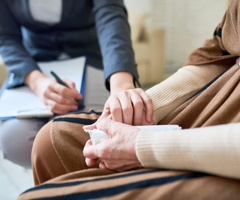question
what mental health resources are available for those with arthritis?
Living with arthritis can significantly impact both physical and mental health. It's essential to recognise the interplay between these aspects and seek appropriate support. In my sources, several mental health resources and strategies are highlighted to assist individuals managing arthritis alongside mental health challenges such as anxiety and depression.
Understanding the Connection
Arthritis can lead to various mental health issues, including:
- Stress and Anxiety: The physical symptoms and treatment navigation can be overwhelming.
- Depression: Chronic pain and limitations can foster feelings of sadness and hopelessness.
- Social Isolation: Difficulty in participating in activities may lead to loneliness.
Mental Health Resources
-
General Practitioners (GPs):
- Your GP is often the first point of contact for mental health support.
- They can diagnose conditions, check for contributing physical health issues, and create a Mental Health Treatment Plan.
- GPs can refer you to mental health specialists, such as psychologists or psychiatrists.
-
Psychologists:
- They provide therapies like Cognitive Behavioural Therapy (CBT) and Interpersonal Therapy (IPT) to help manage anxiety and depression.
- Psychologists can assist in developing coping strategies and improving emotional wellbeing.
-
Psychiatrists:
- As medical doctors, they can prescribe medication and provide comprehensive assessments.
- They often work in conjunction with psychologists to offer a holistic approach to treatment.
-
Mental Health Nurses:
- These professionals provide care and support for individuals with mental health conditions.
- They can monitor medication and assist in therapy sessions.
-
Accredited Mental Health Social Workers:
- They offer a range of therapeutic approaches and can provide focused psychological strategies.
- They help individuals manage their mental health in the context of their overall wellbeing.
-
Occupational Therapists:
- They assist individuals in participating in daily activities despite mental health challenges.
- They can provide self-help strategies, including relaxation techniques.
-
Aboriginal and Torres Strait Islander Mental Health Workers:
- These workers provide culturally safe and accessible services tailored to the needs of First Nations Peoples.
- They offer support in areas such as screening, assessment, and advocacy.
Support Services
In addition to healthcare professionals, various support services are available:
-
Crisis Support:
- Lifeline: 13 11 14 for 24/7 crisis support.
- Suicide Call Back Service: 1300 659 467 for telephone and online counselling.
-
Mental Health Support Lines:
- Beyond Blue: 1300 22 4636 for information and support regarding mental health.
- MensLine: 1300 78 99 78 for counselling services for men.
-
Youth Support:
- Kids Helpline: 1800 55 180 for young people aged 5-25.
- Headspace: Early intervention mental health services for 12-25 year-olds.
-
Digital Resources:
- MindSpot: A free service for adults experiencing anxiety, stress, or depression.
- SANE Australia: Provides support and advocacy for those affected by complex mental health issues.
Self-Help Strategies
In addition to professional support, there are several self-help strategies that can be beneficial:
- Stay Informed: Educate yourself about arthritis and its mental health implications.
- Practice Self-Compassion: Be kind to yourself and acknowledge your challenges.
- Engage in Physical Activity: Gentle exercises like swimming or yoga can improve mood and reduce pain.
- Manage Stress: Incorporate relaxation techniques such as deep breathing or mindfulness into your routine.
- Set Realistic Goals: Break tasks into manageable steps and celebrate small achievements.
- Maintain a Healthy Lifestyle: Focus on a balanced diet, adequate sleep, and limit substance use.
Seeking Help
If you or someone you know is struggling with mental health issues related to arthritis, it’s crucial to seek help. The earlier you reach out for support, the better the chances of recovery.
Remember, you are not alone in this journey. There are numerous resources and professionals ready to assist you in managing both your arthritis and mental health effectively. If you have specific questions or need further assistance, please consider consulting a healthcare professional for tailored advice.
This information is not a substitute for professional medical advice, diagnosis or treatment. Always consult a registered healthcare professional about matters that affect your health. Clara uses artificial intelligence to generate general information for personal educational purposes only, not intended to be a management plan and it may contain errors, inaccuracies or may oversimplify concepts.








